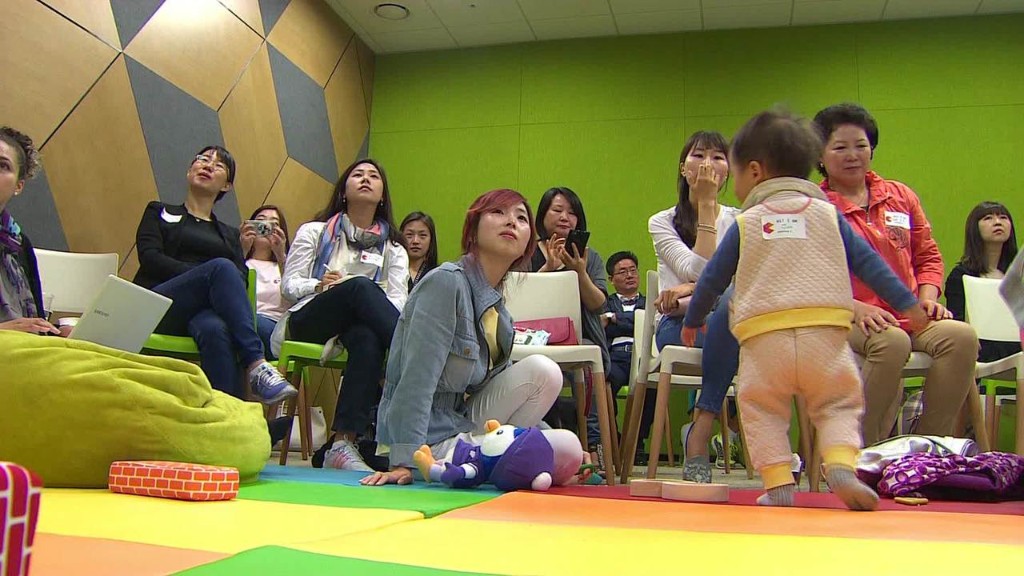
South Korean women suffer the worst pay gap in the developed world, and the discrimination doesn't end there. That didn't stop one budding entrepreneur.
Romi Haan was scrubbing the floor on her hands and knees when she came up with the idea that would change her life.
"In Korea we live on the floor, we sleep on the floor, we play on the floor, we do everything on the floor," she told CNN. "So it is very important to keep the floors clean, and it's one of the most hated household chores for Korean housewives."
Haan's idea was to develop a steam mop to relieve the drudgery. It proved hugely popular in South Korea and abroad.
Now, she is the head of HAAN, a multi-million dollar home appliances company -- a rare position for a Korean woman to find herself in.
"Traditionally, women stay home, take care of the kids, take care of the family, and it is not common to see a woman start [her] own business," she said.
That traditional approach to business means she had trouble even getting a loan to fund her first steam mop.
"The first thing the guy asked me was: 'So what kind of business did your husband bankrupt that you're fronting his business?'" she recalled.
She had to mortgage her house, and borrow money from her parents and in-laws to get her company off the ground.
That was more than 15 years ago, and Haan says society has started to move on. But at more than 35%, the gender wage gap in South Korea remains the widest in the OECD group of developed nations.
Related: Shocking gender pay gap in London's banks
The typical work day for many women can be grueling, even though some companies are trying to implement better policies.
One young mother, Cho Ah-ra, told CNN her last company was not very family friendly.
"Although official work hours were from 9 to 6, it was normal to get to work around 8 am and I did not get out of work until 8 or 9 pm," she said. "And sometimes I would even work on weekends."
The pressure of work can even lead to some women putting off having a second child -- a concern in a country with one of the lowest birth rates in the world.
Related: Where the gender pay gap is widest
Legally, mothers are allowed three months' leave on full pay immediately after giving birth plus another year's maternity leave, receiving 40% of their salary.
But even the government acknowledges most do not take all that time off. It says it is working with businesses to improve conditions, so more parents feel they can take that leave and still have a job when they return.
Haan says she makes it a priority to encourage her employees to take time for family.
"A lot of companies, when you come back from maternity leave you are at the bottom of the ranking, right? So I think we have like a 100% return rate after maternity leave, and most people at our office they take about a year to a year and a half maternity leave, which is unusual."
--CNN's Jungeun Kim contributed to this report


